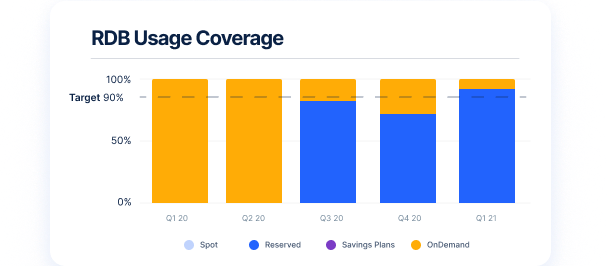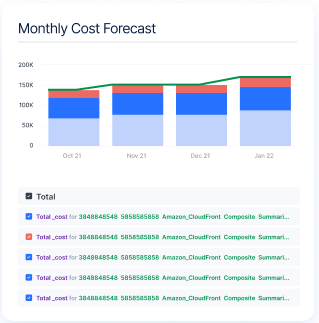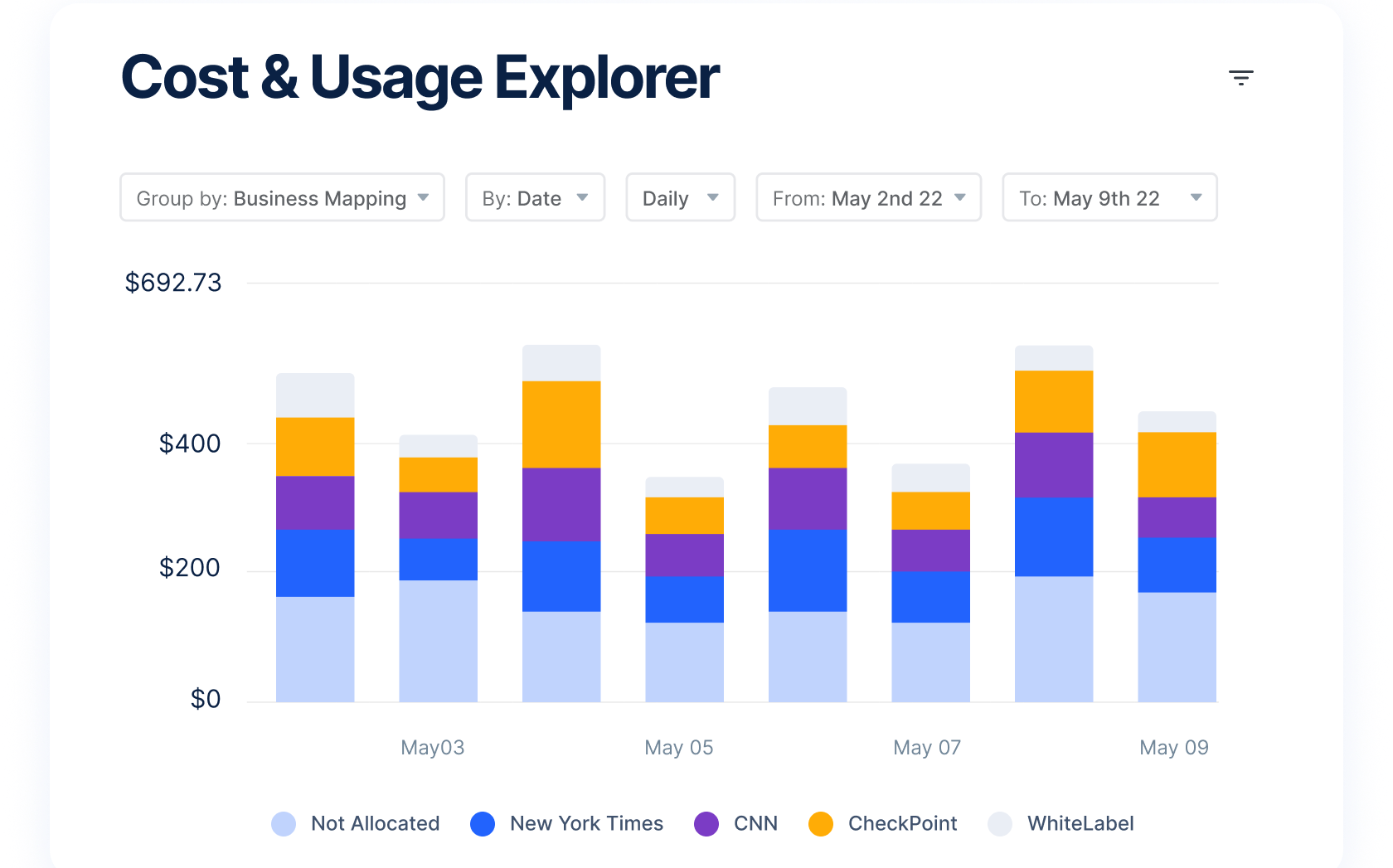Navigating the complexities of cloud financial management requires more than just tracking costs – it demands a strategic approach to measure and optimize cloud spend.
We have put together our top 7 KPIs, ranging from allocatable cloud spend and average hourly costs to sophisticated forecasting, to effectively gauge your FinOps solution success. Each KPI offers unique insights, helping businesses manage and maximize their cloud investments.
-
Allocatable Cloud Spend
Allocating cloud costs is critical for understanding actual service usage and establishing accurate budgets and forecasts. To optimize your FinOps practice, aim for at least 80% of cloud spend allocation. This KPI is crucial for detailed visibility into cloud services usage at different organizational levels.
-
Average Hourly Cost
Normalizing cloud service costs across various projects and billing methods is key. Average hourly cost provides a standardized metric to assess financial planning and resource allocation effectively, thereby enhancing decision-making.
-
Cloud Unit Costs
Grasping unit economics related to cloud spending is vital for assessing cost-effectiveness concerning business growth. This KPI helps in correlating cloud spending growth with business objectives, providing critical insights for strategic planning.
-
Percentage of Wasteful Spend
Reducing waste in cloud spending is essential. This KPI identifies areas of overspending and underutilization, highlighting potential savings and optimizations, thus improving financial efficiency.
-
Blend of Purchasing Strategies
Diversifying purchasing strategies can significantly impact cloud efficiency. This KPI assists in achieving a balance between various purchasing options, such as on-demand, reserved instances, or spot instances, maximizing cost savings and operational effectiveness.

-
Time to Address Cost Anomalies
Rapid response to cost anomalies is vital. This KPI evaluates the effectiveness of your response strategies to unexpected cost variations, minimizing financial risks and ensuring cost-efficiency.
-
Forecasting Accuracy
Accurate forecasting is essential for budgeting and strategic planning. Evaluating the variance between forecasted and actual cloud spend is key to making informed financial decisions, allowing businesses to adapt and optimize their cloud strategies.

Conclusion
These seven KPIs form the backbone of an effective FinOps strategy, guiding organizations toward optimized cloud financial management.
As cloud infrastructure continues to be a major budget component, understanding and applying these metrics is crucial for financial success.
If you are looking for more in-depth metrics and their role in driving effective cloud financial management, download the full whitepaper.
Book your Demo today!
Get full visibility into your multicloud environments so you can visualize, optimize, and monitor your cloud usage and costs across cloud providers and teams.






